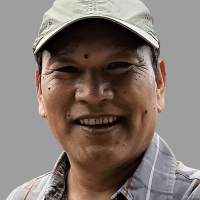UNESCO estimates that 617 million children—nearly all in low-income countries—are not achieving minimum proficiency levels in reading and mathematics. To overcome this, education systems in the Global South require better and more effective teacher training, more gender equity, better learning processes and more efficient ways of using evidence to better inform planning in the education sector. All of this will help achieve the UN’s Sustainable Development Goal (SDG) 4, which aims to ensure “inclusive and equitable quality education and promote lifelong learning opportunities for all.” A key way to hasten progress is addressing knowledge gaps, improving access to evidence, and strengthening systems that support the generation and uptake of evidence and innovations in the Global South.
The Global Partnership for Education Knowledge and Innovation Exchange (KIX) is a global response to these challenges. With a budget of about CAD $100 million (over USD $75 million), KIX supports the scaling of promising education innovations and strengthens partners’ capacity to address these challenges. KIX is the largest fund solely dedicated to bridging the knowledge gaps that undermine education systems in developing countries.
HOW KIX WORKS
KIX is designed to be shaped by the demand from national education systems and respond to their principal policy and programming challenges. KIX both funds research and facilitates knowledge sharing among country stakeholders to enhance their education systems using relevant evidence and actionable research.
KIX operates through two main mechanisms, which contribute to strengthening national education systems with relevant and actionable evidence:
- Exchange of knowledge: KIX creates spaces for GPE partner countries to share information, innovation, and best practices in relation to their needs and priorities, and disseminates knowledge generated through KIX-funded projects. The exchange of knowledge is facilitated through KIX’ four regional hubs.
- Applied research projects: KIX projects build evidence, mobilize knowledge, and strengthen capacity of educational stakeholders on how to adapt and scale innovations that address education priorities of GPE partner countries.
These mechanisms are mutually reinforcing: building and mobilizing evidence through applied research generates new knowledge to support the scaling of promising and proven innovations, while knowledge exchange plays an important role in identifying priorities for research and learning, synthesizing and sharing relevant knowledge to facilitate learning, and encouraging the uptake of evidence in policies and practice. These two mechanisms are complemented by support for monitoring, evaluation and learning (MEL), and communications and engagement.
WHERE KIX WORKS
KIX brings together 86 low- and middle-income countries that are partners of the Global Partnership for Education to identify common policy challenges and facilitate knowledge sharing and evidence building. KIX currently funds 60 projects across these 86 countries.
KIX TEAM
KIX is implemented by the International Development Research Centre (IDRC) and includes a globally diverse team.













